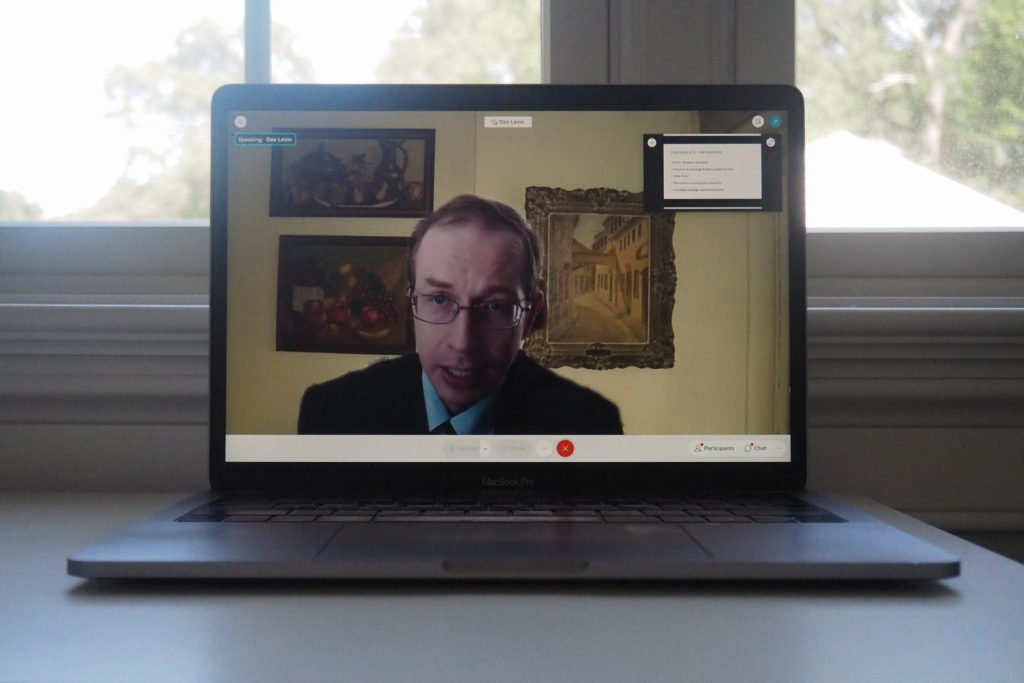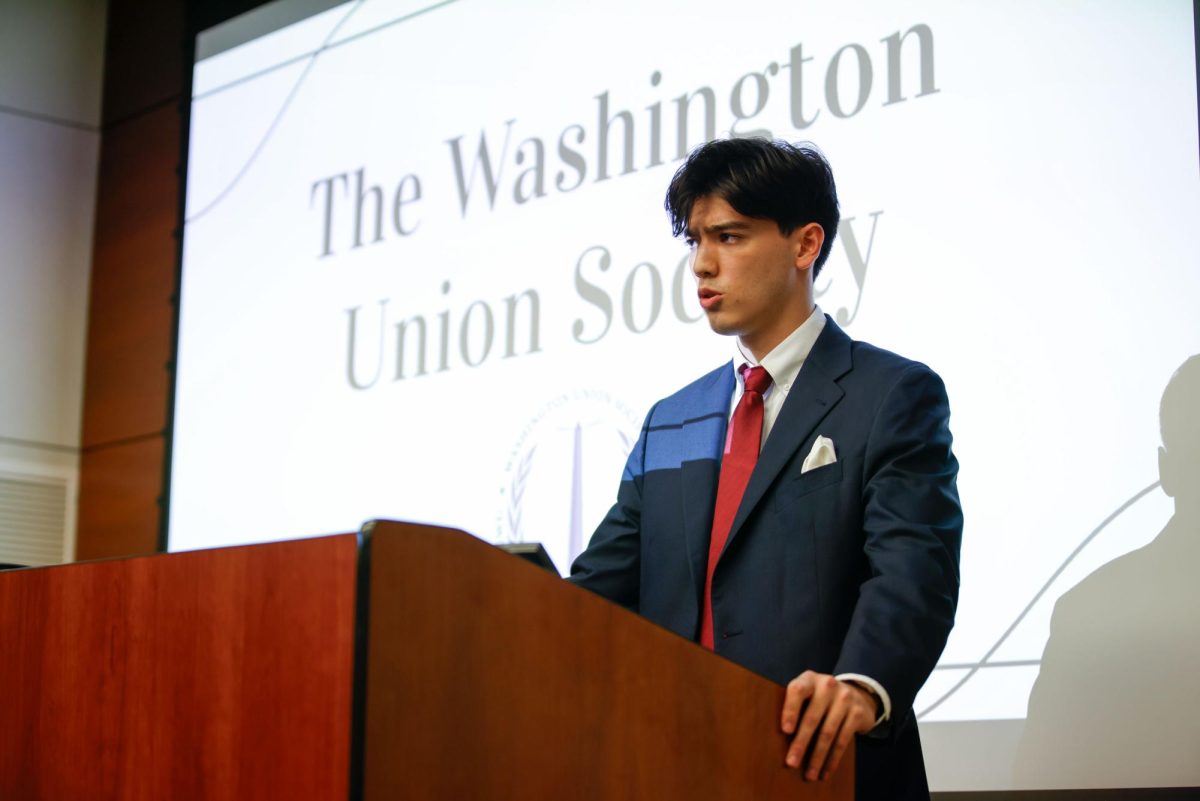An author and international relations professor spoke about foreign interference with elections at an Elliott School of International Affairs event Monday.
Don Levin, an assistant professor of international relations at the University of Hong Kong and author of “Meddling in the Ballot Box: The Causes and Effects of Partisan Electoral Interventions,” spoke about theories regarding why and how election intervention occurs in his recent book. Harris Mylonas, an associate professor of political science and international affairs, moderated the virtual event.
Levin said while completing research for his book, he discovered that there has been scarce research in electoral intervention, particularly before 2016. Levin’s work is the first academic book to focus solely on this topic in a systematic fashion, he said.
Levin said his book expands on his theory that election meddling can be thought of as a “policy tool” that “great powers” use. He said that some interventions are more effective than others.
As the country approaches the November general election, Levin said many officials are on “high alert” about possible meddling effects, given strong circumstantial evidence of interventions by Russian President Vladimir Putin.
Levin added there is evidence of Russian intervention for President Donald Trump through methods like Facebook and fake news in the upcoming election, but he said there is less use of “dirty tricks” like hacking and leaking of documents, which was seen in 2016.
He said he does not expect Russia’s current meddling efforts to be large enough to have an effect on the election because people are on alert more than they were before.
Levin said Putin’s interference during the 2016 election “increased Trump vote shares by 2.03 percent and 75 Electoral College votes” and serves as the “hinge of history” that led to Trump winning in 2016. This phenomena of foreign interference in elections has been common for decades in more than 60 countries and is “not expected to stop,” he said.
Levin said one cause for intervention is when one country sees another’s candidate as a threat. Putin had a “deep fear” of Hillary Clinton because of an “existential threat,” like initiating a new Cold War with Russia, Levin said.
Levin added that with “inside help,” Putin was able to interfere with an effect large enough to change the election winner.
Levin said that interventions are more likely to work when voter and international backlash is not likely, as backlash “impacts voter behavior directly.” He said tactics used before an election may include aid cutoffs, promises made by an official representative of the intervening government or “dirty tricks” like fake news and leaks from Wikileaks.
“There are many factors that impact how people vote,” he said. “Meddling does not completely save a candidate.”
Levin said he found that the United States has been the biggest election meddler of all the countries that have been determined to interfere with election results.
Levin listed examples of when the U.S. meddled in foreign elections, including a 1996 intervention in Russia’s elections as well as a 1953 interference in West German elections.
Levin said that although meddling has occurred since the 18th century and is a common occurrence that cannot be prevented, there are ways to reduce harm. He said creating a law where collusion and cooperation carries a charge or a punishment or launching a public service announcement campaign against foreign meddling to deter overt intervention are ways to reduce the damage that meddling causes.
“Some interventions work better than others,” Levin said. “Domestic mail-in ballots have never been used by a foreign power to interfere with a foreign election. Exposure to the general public about covert interference as well as deterring overt interventions may decrease its impact on elections.”








